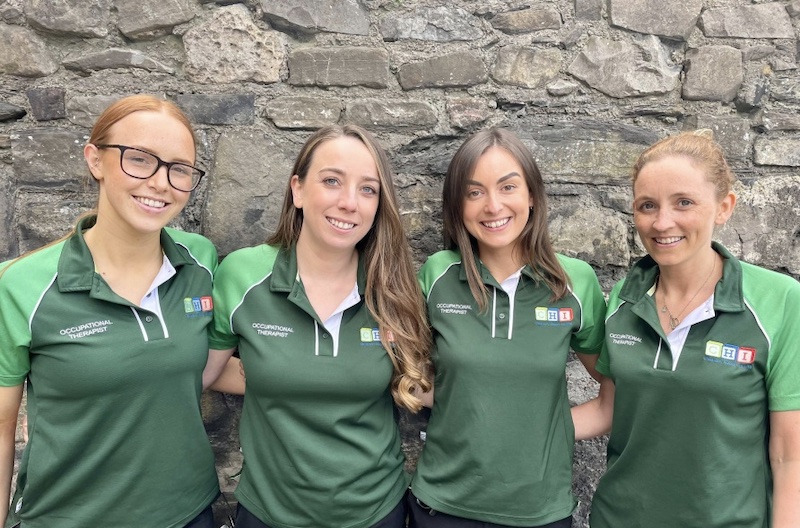The aim of Occupational Therapy (OT) is to enhance, enable and empower young people’s participation in daily living activities (occupations). We do this by helping them adapt to challenges that result from illness, developmental delay or disability. We help to support engagement through rehabilitation and adaptation of the environment or task. The purpose of Occupational Therapy is to help the child/adolescent achieve or maintain their maximum level of independence and to develop practical life skills so that they can participate to their full potential in the home and classroom environment.
Role of Occupational Therapy in Neurosurgery:
The Neurosurgery Team is supported by a Clinical Specialist, Senior OT’s and part time Staff Grade therapist from OT Neuroscience team. Photo below of team; Siobhan Divilly, Staff Grade OT, Aisling Crosbie, Senior OT, Vivienne Hughes, Senior OT and Sinead Leahy Clinical Specialist OT (picture order).

All patients admitted under Neurosurgery can be referred for inpatient Occupational Therapy. We will assess the patient when they are admitted and work with them towards their goals until they are discharged home or no longer have acute OT needs.
Our occupational therapists asses how neurological presentations affect a patient’s abilities and provide solutions to help our patient’s complete everyday tasks in the following areas:
- Self-care, which includes washing, dressing, and eating
- Work, which may be paid or unpaid (e.g. school)
- Leisure, including socialising and hobbies.
If a child is going for surgery we will gather baseline information and assess the child prior to surgery (if required) and then following the surgery. We will goal set with the child and their family and will help plan for discharge home.
We work on goals to support children’s functional participation, sensory needs, upper limb, processing and visual skills.
Some of our assessments and treatment may include the following areas:
-
- Administration of standardised and functional assessments
- 24 postural management
- Upper limb tone management (including splinting and casting)
- Sensory and processing assessment and intervention
- Functional Assessments of Daily living tasks
- Using everyday activities to regain lost skills (i.e. upper limb function, balance, concentration)
- Assessment and provision of equipment and training in compensatory techniques to promote safety and independence
- We work closely with carers and family, involving them in patient assessment and treatment and providing support and education when needed families.
We work very closely with our MDT to provide the best care and support for children and families attending Temple Street. We link with schools and local therapy services as required to provide the best possible transition to home.
